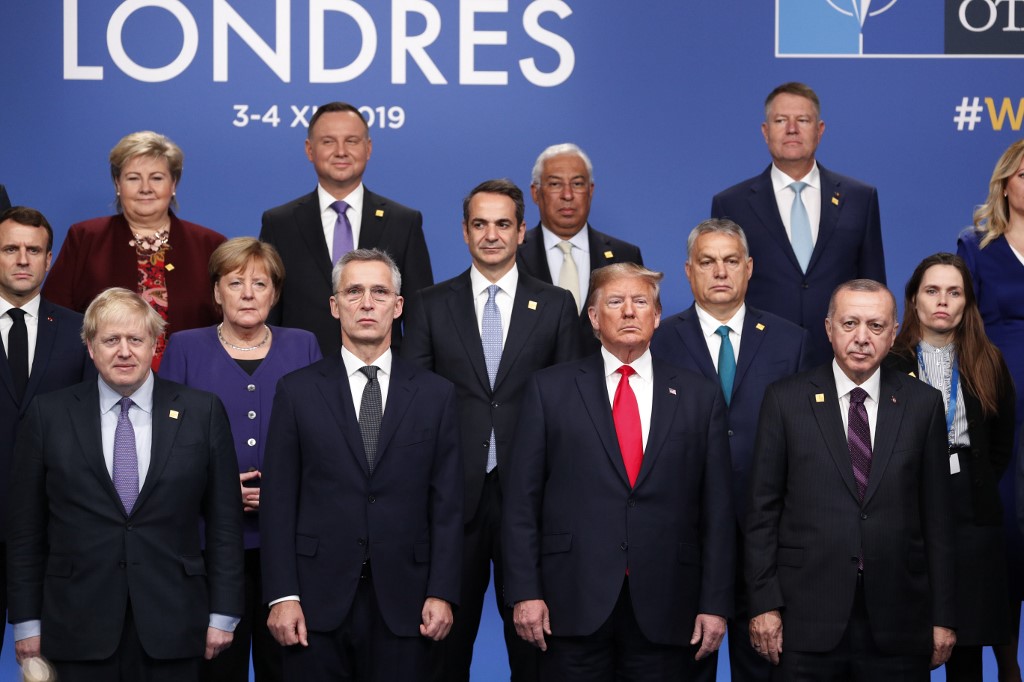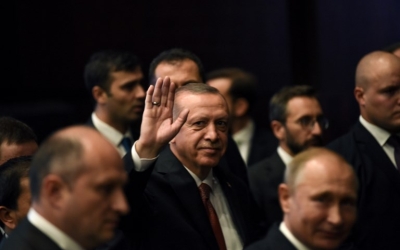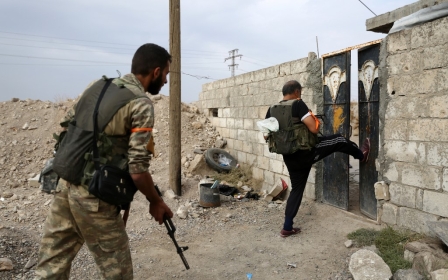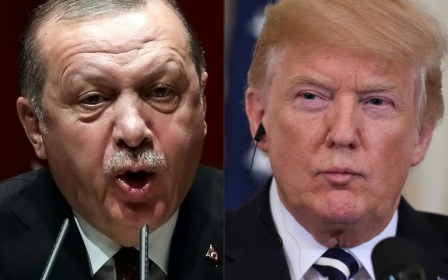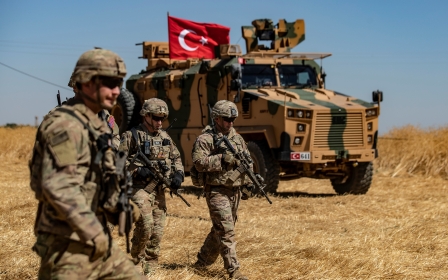Nato on a knife edge: Can Turkey win round its allies?
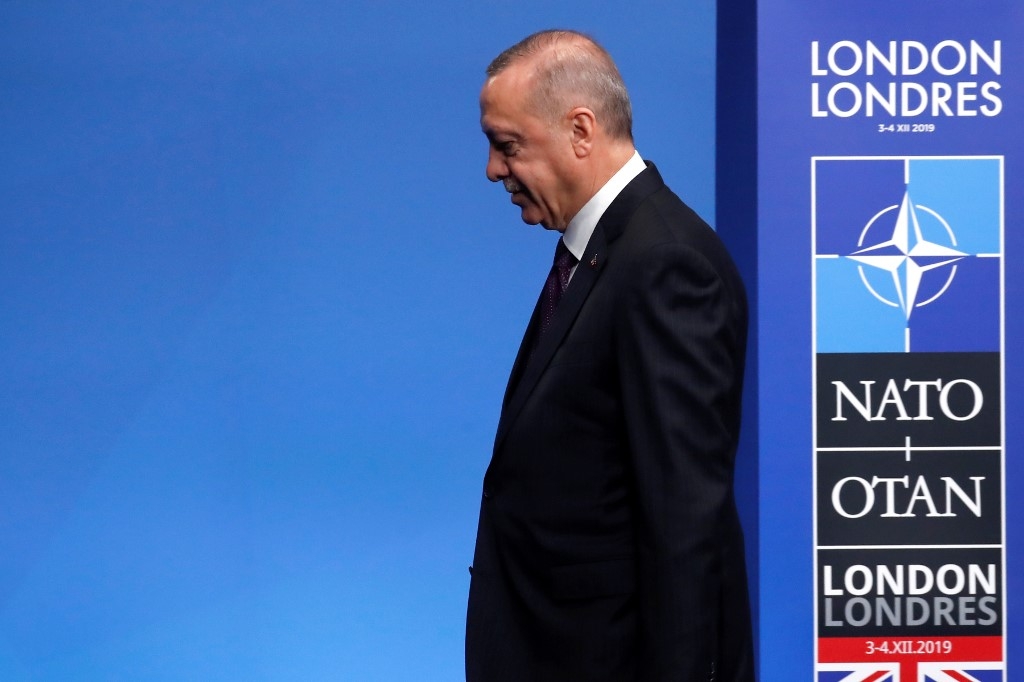
Nato leaders met near London this week for a highly orchestrated summit marking the 70th anniversary of the alliance.
The gathering was designed to show a united front among member states and to press the case for Nato’s relevance as the preeminent global security and defence architecture. But it was overshadowed by sharp differences among members on national security, exacerbated by French President Emmanuel Macron declaring that Nato had suffered “brain death,” prompting a rebuke from US President Donald Trump.
France sees Turkey’s latest military incursion into northern Syria, effectively green-lighted by the Trump administration, as a sign of the malaise of the alliance and its failure to take joint action. Turkey’s controversial purchase of the S-400 missile defence system from Russia has also created consternation.
Fighting terrorism
Ahead of the Nato meeting, Turkish President Recep Tayyip Erdogan said he expected allies to lend unconditional support to Turkey’s fight against terrorism.
Turkey wants Nato to formally designate the Kurdish People’s Protection Units (YPG), the main component of the US-backed Syrian Democratic Forces, as terrorists and halt military aid and support to the group. The YPG is the Syrian branch of the outlawed Kurdistan Workers’ Party, viewed by Ankara as a terrorist group amid its three-decade insurgency.
Shortly before travelling to London, Erdogan told reporters: “If our friends at Nato do not recognise as terrorist organisations those we consider terrorist organisations... we will stand against any step that will be taken there.”
Turkey objects to what it sees as an unfair double standard by its Nato allies and an underestimation of the scale of the threat the country faces on its southern border with Syria
On Tuesday, Macron said greater clarity was needed on common definitions and procedures to determine legitimate threats to members, adding: “We don’t have the same definition of terrorism around the table.” This echoed earlier remarks by US Defence Secretary Mark Esper, who urged Turkey to work within Nato on “bigger issues,” adding that “not everybody’s willing to sign up to their agenda. Not everybody sees the threats that they see.”
Nato stands on a pledge to defend its members, enshrined in Article 5’s “all for one, and one for all” spirit. If this underlying principle were to fall apart, there would be little holding the alliance together.
Turkey came under fire for threatening to block a proposed defence plan for Poland and the Baltic states unless its right to fight against the Kurdish militia in Syria was recognised. The move was seen as evidence that Turkey has become a pro-Russia spoiler within Nato.
Yet, these claims were rejected by Turkish officials, who said all members are entitled to a veto. Underlying Turkey’s position was the conviction that Nato should equally defend the security interests of all its members. On Wednesday, Turkey reportedly withdrew its objections to the plan.
Missile defence dispute
Tensions between the US and Turkey over the S-400 purchase, meanwhile, reached new heights last month when Ankara defied US threats of sanctions by testing the missile defence system. The move rattled the White House and Republican senators, throwing another wrench into bilateral relations.
Turkey objects to what it sees as an unfair double standard by its Nato allies and an underestimation of the scale of the threat the country faces on its southern border with Syria.
Turkey’s government seeks to delineate a 20-mile-deep “safe zone” along a 120-km stretch of the border, with Turkish and Russian forces running joint patrols. Erdogan has also called for support in the resettlement of Syrian refugees to the zone.
Turkey seeks a level of support from its allies proportional to its strategic significance to the alliance and its history of involvement in high-risk conflicts.
Speaking in Ankara ahead of the summit, Erdogan reiterated that Turkey’s geographical position demands the pursuit of a multi-dimensional foreign policy. “Our relations with Russia and other states are not an alternative to relations with our allies, but on the contrary, work to complement them,” he said.
The future of Nato has been on the Turkish media’s radar in recent days, with pro-government columnists questioning its relevance in a post-Soviet, multi-polar global order. One columnist went so far as to argue that Nato was no longer an ally, but a threat to Turkey, having never truly partnered with Ankara in its costly fight against terrorism.
Benefactor and hostage
Such inflammatory rhetoric has not been adopted by the government. Rather, Turkey has long claimed that it is both a benefactor and hostage to its strategic place on the map, compelled to attempt a tough balancing act between neighbours in a volatile region and the interests of outside powers.
In an era where the nature of conflict is rapidly changing, and with the ubiquity of asymmetric threats - including cyberwarfare and armed non-state actors - Turkey argues that Nato must adapt and undertake reforms to keep up.
After the two-day summit, two points seem clear. Firstly, Nato is just as much a political alliance as a security one. Aligning and agreeing on the national security interests of its diverse members will require sustained commitment and pragmatic steps over time.
Secondly, although Turkey will not concede on its national interests in Syria anytime soon, Nato can manoeuvre through dialogue, offering balanced solutions through a “common interests” approach. While not without acrimony, Nato has a track record of institutional resilience that could help to defuse the current impasse.
While Turkey cannot be legally evicted from Nato, it does face the threat of US-led sanctions and isolation in the courts of public opinion among its members. Further alienating Poland and the Baltic states would have done Ankara no favours.
The views expressed in this article belong to the author and do not necessarily reflect the editorial policy of Middle East Eye
Middle East Eye propose une couverture et une analyse indépendantes et incomparables du Moyen-Orient, de l’Afrique du Nord et d’autres régions du monde. Pour en savoir plus sur la reprise de ce contenu et les frais qui s’appliquent, veuillez remplir ce formulaire [en anglais]. Pour en savoir plus sur MEE, cliquez ici [en anglais].



